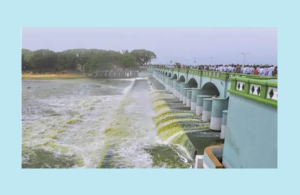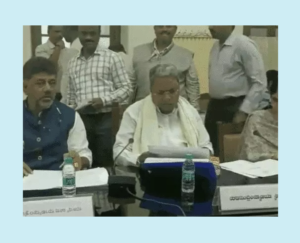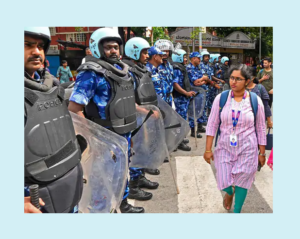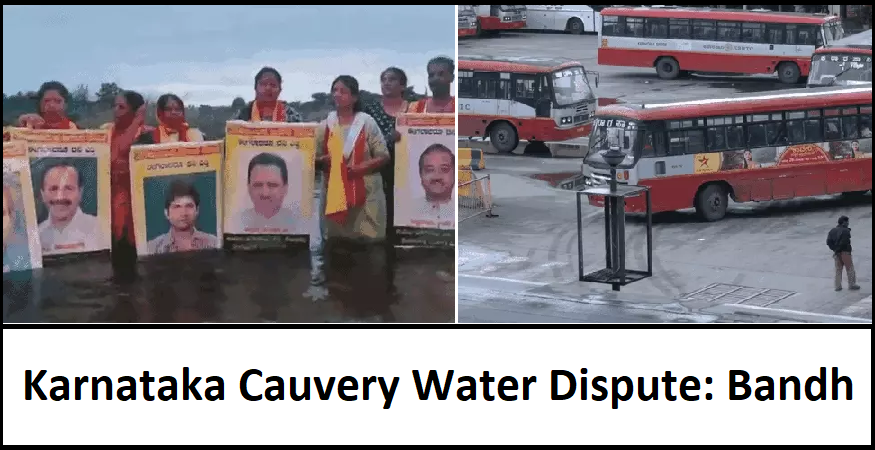Karnataka Cauvery Water Dispute: The Bandh
In Karnataka, a significant bandh (shutdown) unfolded today in response to the ongoing Cauvery water dispute with Tamil Nadu. This article provides a comprehensive overview of the bandh, its impact, the demands of the protesters, and government efforts to address the situation.
Prominent organizations, including Kannada Okkoota Sangh and farmer groups, called for a 12-hour bandh from 6 am to 6 pm to protest against sharing Kaveri river water with Tamil Nadu. The opposition parties, BJP and Janata Dal Secular, also showed support for the bandh, leading to widespread demonstrations in various districts of the state.

Protesters and Impact
Karnataka Police detained over 50 protesters who aimed to disrupt highways, toll gates, and rail services. The bandh resulted in the closure of shops, malls, theaters, hotels, and restaurants. While metro-bus services continued, the attendance was minimal. Schools and colleges in Bengaluru and Mandya declared a holiday.
The Kempegowda International Airport reported the cancellation of 44 flights to and from Bengaluru, causing significant disruptions.
Government Response
CM Siddaramaiah held a crucial meeting with Deputy CM DK Shivakumar to address the ongoing dispute. Earlier, on September 26, during a Bengaluru bandh, over 200 people were arrested.

The Cauvery Water Dispute
The conflict stems from an order by the Cauvery Water Management Authority (CWMA) on September 13, which directed Karnataka to release 5 thousand cusecs of Kaveri river water to Tamil Nadu for 15 days. This decision faced strong opposition from farmer organizations, Kannada groups, and political parties in Karnataka. The dispute itself has been ongoing for 140 years.
Section 144 Impositions
Section 144 was enforced in several Karnataka districts, including Bengaluru Urban, Mandya, Mysore, Chamarajanagar, Ramanagara, and Hassan. This prohibits gatherings of more than four people and led to the closure of educational institutions.
Demands of Protesters
Protesters had presented five demands to the government, giving a three-day ultimatum for a response. These demands included refraining from providing water to Tamil Nadu, establishing an institution similar to the Election Commission for crisis assessment, initiating the Mekedatu project, and withdrawing cases against supporters of farmers.

Economic Impact and Concerns
Bengaluru industrialists expressed concern about a potential loss of around Rs 4,000 crore due to two bandhs in a week. They emphasized that such disruptions could jeopardize the region’s economic recovery from the pandemic. They urged authorities to permit peaceful protests instead of bandhs.
Government Statements
CM Siddaramaiah accused opposition parties of politicizing the Cauvery water dispute. He stated that while they could call for a bandh, the government would not obstruct it. Deputy CM DK Shivakumar noted that Tamil Nadu had requested 12,500 cusecs of water, but Karnataka was unable to release even 5,000 cusecs at present.

Conclusion
The Karnataka Cauvery water dispute has led to significant unrest, with protesters demanding the protection of their state’s interests. The government and opposition continue to engage in discussions, hoping to find a resolution to this longstanding issue. As the situation develops, it remains critical to strike a balance between the demands of the protesters and the economic stability of the region.
Image Courtesy: Google
For related news- https://universenews.co.in/category/politics/
